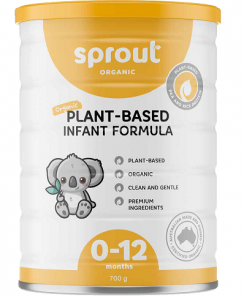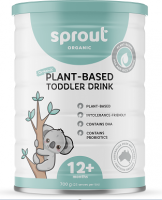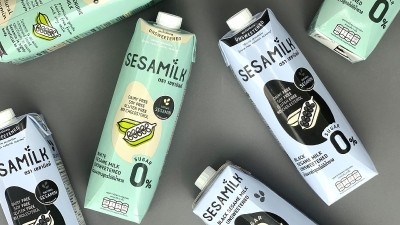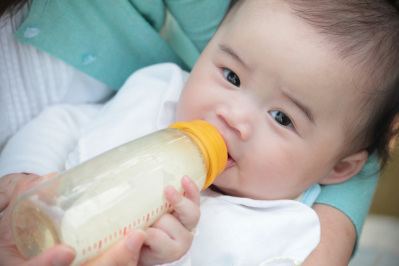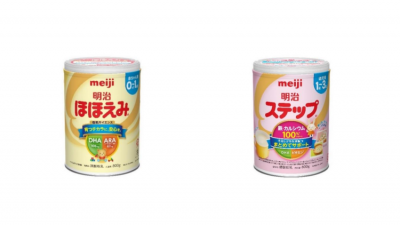‘Possible opportunity’: ANZ infant nutrition firms gear up for US market entry amid formula shortage
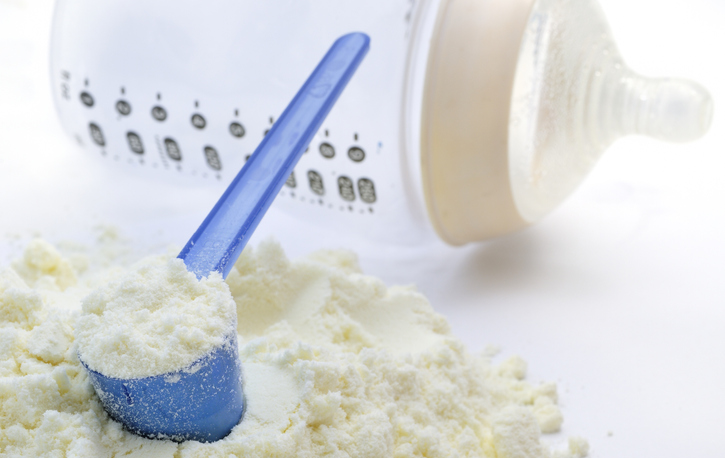
However, whether this will become a long-term opportunity will depend on the US’s willingness to relax its stringent policies on overseas products, said industry players.
The Australia and New Zealand companies which are seeking entry into the US include brands well-established in the Asia-Pacific, as well as start-ups, the region’s industry body Infant Nutrition Council CEO Jan Carey told NutraIngredients-Asia.
Australia and New Zealand’s infant formula makers were also invited for a webinar with the US Food and Drug Administration (US FDA) on streamlining the export process on last Friday (May 20), she said.
“I can't tell you who the companies are, but I do know that there are some companies, Australian and New Zealand companies who are seeking to get into the US market.
“But it is so difficult to get in [the US infant formula market]. The United States has tried to capture the market and protect the US dairy industry and as a result, they have left themselves exposed and you can see they have, by this terrible formula shortage.
“It shows how important infant formula is, because it is a source of nutrition for the most vulnerable population. So, it is really important that the supply chain is not disrupted, and by having so few manufacturers when something like this goes wrong, they've really put themselves at risk,” Carey said.
Some of the challenges entering the US infant formula market include the regulatory, labelling, and technical requirements.
The US government has launched a series of policies to address infant formula shortages caused by Abbott Nutrition’s voluntary recall in February.
Some of these policies will see the US Food and Drug Administration temporarily reduce the regulatory requirements for infant formula imports.
For instance, US president Joe Biden on May 18 invoked the Defense Production Act and the launch of Operation Fly Formula to secure more infant formula into the country.
Of which, Operation Fly Formula will allow commercial aircraft to pick up overseas infant formula that meets the country’s health and safety standards. This will bypass the regular air freighting routes to speed up importation.
This has presented opportunities for overseas infant formula manufacturers to export their products to the US.
The Australian Trade and Investment Commission (Austrade), for example, had released a statement on May 18 saying that Australian infant formula exporters may wish to consider supplying the US market due to the high demand and reduced regulatory barriers.
“Interested infant formula exporters should respond promptly to this time-sensitive project,” the statement said.
Last week, the US FDA has also agreed on the steps to reopen Abbott Nutrition’s Sturgis facility. After FDA’s approval, Abbott could restart the site within two weeks, and from the time of restart, it would take six to eight weeks before the products are available one shelves, the firm said.
In or wait
Responding to queries from NutraIngredients-Asia, there are companies taking the chance to expedite their debut in the US market, while others are taking the wait-and-see approach.
Australia’s plant-based formula firm Sprout Organic, which told us in April their expansion plans into the US, said it expected to participate in the US market within the next 90 days.
If not for the temporarily relaxation in the US FDA’s regulations, the original timeline for approval was 18 to 24 months, the firm said.
“We are working closely with the FDA and Austrade to expedite Sprout's access into the USA...We are anticipating approval from the FDA, under the expedited guidance issued by the White House, to be actively participating in-market within the next 90 days.
“The original timeline for approval was 18 to 24 months, not to mention millions of dollars which is a huge barrier to entry,” Ben Chester, head of regulatory affairs at Sprout Organic said.
Two of its products are currently pending approval from the US FDA, namely Sprout Organic Plant-Based Infant Formula 0-12 Months and Sprout Organic Plant-Based Toddler Drink 12+ Month.
The firm is also considering manufacturing its infant formula into pouches for speed of production.
It is expected to work with ecommerce retailer Vejii US and CVS Pharmacy which has about 10,000 outlets across the US.
“We have been working closely with ecommerce retailer, Vejii US, who have 4 distribution centres throughout the states to get our products directly to consumers. We have also commenced discussions with CVS, which has about 10,000 outlets across the USA for national distribution,” said Chester.
The a2 Milk Company, on the other hand, said that entering the US infant formula market was not a strategic priority, but it would monitor the developments.
A spokesman from the company said the firm was aware of the shortages in the US, the market, was however, of a very different structure and regulatory environment.
Another Australian infant formula company, Nuchev, which specialises in goat milk based formula products, believes that the opportunity for exporting infant formulas into the US will be a short-lived one.
“We have been for a while looking at opportunities to export stage three and four toddler milk to the US, but are we responding to this current crisis and exporting stage one and two infant formulas? I think that's very unlikely,” Ben Dingle, CEO of Nuchev told us, explaining that the opportunity for infant formula export would be a short-lived one.
Firstly, this is because the US FDA has already cut a deal with Abbott to reopen its facility in Michigan.
Secondly, big brands which already have distribution in the US are already airfreighting their products to meet the country’s immediate demand.
Thirdly, the regulatory environment makes it challenging to enter the country’s infant formula market.
“We think the crisis will be over very quickly and there's a lot of compliance hoops and obligations that you've got to go through to make it [infant formula approval and export] happen,” Dingle said.
Global players
Global players such as Nestle and Danone are either airfreighting or planning to beef up their production.
Danone, for example, told us that it has been in discussions with the US authorities on the support that it could offer.
“In the US, Danone sells standard infant formulas under Nurture’s line of Happy Family Organics brand, as well as specialized medical formulas under the Nutricia brand.
“Nutricia and Happy Family are in discussions with the US authorities to see what support can be offered in addressing these shortages,” a Danone spokesman said. The Happy Family products are made in the US, while the medical formulas are typically made in Europe.
On the other hand, the US has approved its first Operation Fly Formula Mission starting with Nestle, according to The White House.
“The Operation Fly Formula shipments will transport the equivalent of up to 1.5 million 8-ounce bottles of three formulas—Alfamino® Infant, Alfamino® Junior, and Gerber Good Start® Extensive HA—all of which are hypoallergenic formulas for children with cow’s milk protein allergy.
“These formulas have been prioritized because they serve a critical medical purpose and are in short supply in the United States because of the Abbott Sturgis plant closure. These shipments will include approximately 246 pallets,” the statement said.
Abbott Nutrition and Reckitt — which owns Mead-Johnson — are also authorised under the Defense Production Act on May 22 to respectively receive priority orders of 1) raw materials such as sugar and corn syrup or 2) consumables such as filters to generate certain oils needed to produce infant formula.
Here to stay?
It remains uncertain if the US FDA will continue to loosen their regulations on infant formula imports, Carey said.
“At this stage, I don’t know whether that means this will be a permanent thing or they are just creating a temporary measure to get through this crisis.
“But what I do know, is that the Food and Drug Administration in the United States has recognised the Food Standard Australia New Zealand (FSANZ) system and they have recognised how good it is and how good our products are.
“I think that [the current situation] possibly creates an opportunity, [and] maybe it doesn’t. You have to speculate whether the US FDA is going to maintain their policy of making it difficult for overseas companies to get into their market or whether they are going to loosen the regulatory strings a little bit and make it easier.”
She said that the council would be talking to both ANZ governments on measures to facilitate entry into the US market.
